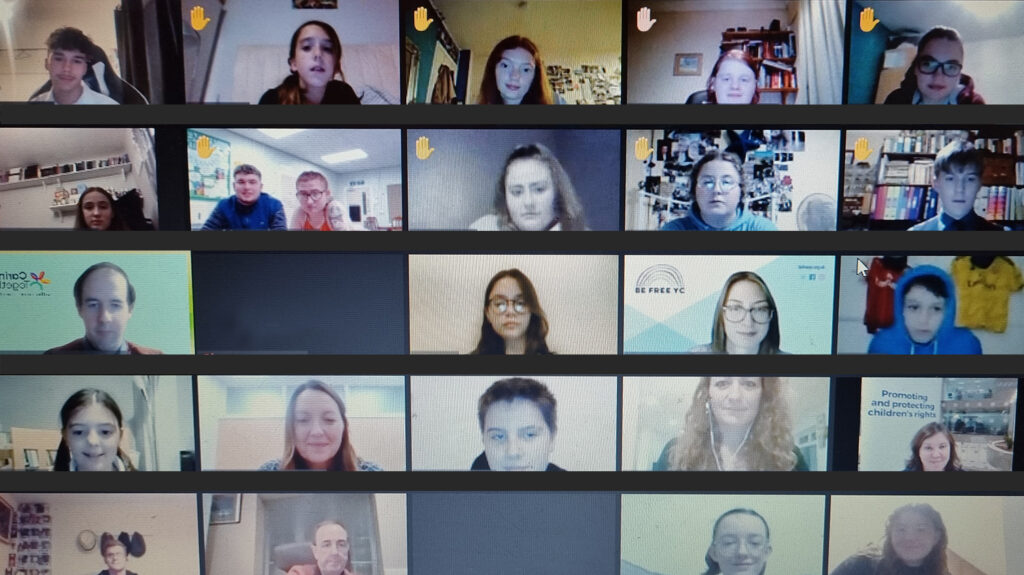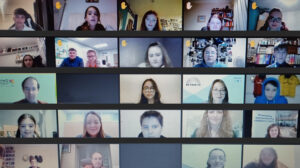
March 16 marks National Young Carers’ Action Day and this year we would like to shine a light on what young carers told us in The Big Ask about their lives and priorities, their aspirations and worries for the future.
The Big Ask is the biggest ever survey of children across England, with over half a million children responding. We received over 6,000 responses from children aged 6-17 years old who reported that they were being supported by a young carers’ project. This is our proxy for understanding them as young carers.
A young carer is someone under the age of 18 who looks after a family member or a friend who has a physical or mental health condition or a drugs or alcohol problem. They do practical things like cooking, cleaning, shopping and going to doctors or to hospital appointments. They also give emotional support to the person they are caring for.
Of the young carers who responded to The Big Ask, two thirds, 66%, told us they were happy with life overall and just over half, 51%, said they were happy with the aspects of their life that the survey asked about, like friendships, their personal safety and access to someone outside to have fun – which is great news.
However, on the flipside, young carers were more likely to say they were unhappy with most aspects of their life compared to all other children.
The most notable differences that young carers were more likely to be unhappy with were:
- Their family’s health: More than twice as many young carers were unhappy than other children (15% compared to 6% of all other children)
- Their mental health: 25% of young carers were unhappy compared to 20% of all other children
- Their family’s ability to buy the things that they need: again, the proportion of young carers unhappy with this was more than double their peers (8% of young carers compared to 3% other children)
- Their family life: 11% of young carers were unhappy, nearly twice as many as other children (6%)
These differences got greater as the young carer got older. Young adult carers aged 16-17 were almost 4 times more likely to be unhappy with their family’s ability to buy the things that they need and 3.7 times more likely to be unhappy with their family’s health when compared to younger carers aged 9-11.
It is not unsurprising then that almost half of 16–17-year-old young adult carers (47%) are unhappy with their mental health – almost triple the rate of 9–11-year-old carers (14%). There’s a clear sign of the mounting pressures on young carers as they get older, and clear need for greater support earlier.
And these are just the children who are already identified as young carers and being supported by a young carers project. The Big Ask also told us about 22,075 children aged 9-17 who indicated that they were unhappy with their family’s health but were not being supported by a young carer’s project. Within this wider group are those children who could be eligible for young carers support but are hidden from sight. Support could have significant benefit for this group of children as they reported that they were less happy with all aspects of life than young carers who were supported.
- On their mental health, children who could be eligible for young carer support were three times less happy than young carers with support (18% compared to 55%)
- On their life overall, children without support were twice as unhappy as young carers with support (33% compared to 66%)
- On their family life, children without support told us that they were more than twice as unhappy when compared to young carers with support (32% compared to 72%)
The Children’s Society says there are approximately 800,000 young carers in the UK. They also report that 39% of young carers said that nobody in their school was aware of their caring responsibilities. In such situations, it becomes very difficult to build in any wider support or recognition for that child at school.
Caring responsibilities can have a significant impact on a young person’s ability to do their best at school. Our current work on educational attendance indicates that young carers may have many demands on their time, and increased anxiety about school which results in some missing a great deal of their education. The Children’s Society’s own research states that as many as 27% of young carers aged 11-15 miss school. It is therefore important to consider whether a child is a young carer if they are severely or persistently absent or missing from education, so that the child can be identified and the family supported, so that the child can be helped to get back into school.
We really welcome the announcement in the Adult Social Care Reform White Paper that the Department for Education will amend the school census requirements to include a category on young carers. In future, schools will have to report on the number of pupils they are aware of with caring responsibilities outside of school.
Knowing how many young carers there are in school will fundamentally increase the visibility of this often hidden group of children.
With this data over time, it will also be possible to gather a longitudinal picture of young carers. A stronger understanding of young carers’ educational attendance and outcomes will help inform future policy to better meet their needs. In The Big Ask, some children expressed dissatisfaction with the support currently available:
‘Not enough support from the government to help children from underprivileged backgrounds (especially if they are young carers)’ – Girl, 16
When this change comes into force, schools will need to be guided in how they can identify young carers and play their part in referring a young person for support. A Barnardo’s and YouGov survey of more than 800 teachers, found that 36% said they did not feel confident about how to refer any young carers to external support services.
Most children are in school, which makes schools ideal places where children can be identified and support can be offered. After parents, schools are the next top referrers of young carers to local authorities. The Keeping Children Safe in Education guidance specifically outlines that Safeguarding Leads should be alert to the needs of young carers. More could be done, however, to share and build on best practice in creating greater school-wide awareness of young carers, identifying them and providing additional support to help them have a better childhood, attend school and make good progress in education.
Young Carers Action Day is an opportunity to bring greater awareness of the roles young carers play in their families and how this can impact on other parts of their lives, from seeing friends, to being able to fully apply themselves in school. We need better mechanisms to identify young carers and share information across multiple agencies, like schools, and also GPs, social workers, and mental health workers, to support young carers to have their needs recognised and met. It is vital that we get this right, so that young carers can shine as bright as they wish.
If you think you could be a young carer, or know someone who might be, and would like to understand how you can get help, you can contact the Carers Trust or The Children’s Society for more information.






